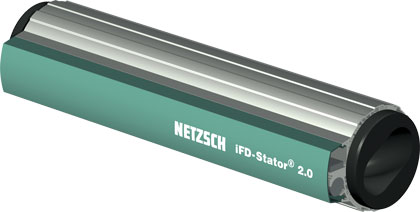
In today’s fast-paced industrial world, operational efficiency and reliability are more important than ever. One of the biggest challenges for industries such as oil and gas, wastewater treatment, food processing, and chemical manufacturing is equipment downtime. Every minute of halted production can result in lost revenue, increased labor costs, and frustrated clients. This is why companies are constantly looking for reliable pumping solutions that minimize breakdowns and extend equipment lifespan. Among the available options, progressive cavity pumps are becoming the go-to choice for industries seeking durability, consistent performance, and reduced maintenance costs.
Understanding Progressive Cavity Pumps
Progressive cavity pumps, often known as screw pumps, operate on the principle of positive displacement. They consist of a helical rotor that turns inside a stator, creating cavities that move fluids in a steady, controlled flow. Unlike centrifugal or gear pumps, which rely on high speeds and pressure differences, progressive cavity pumps handle fluid transfer with precision and consistency.
This unique design allows them to work with a wide range of substances, from thin liquids to highly viscous, abrasive, or shear-sensitive materials. Their adaptability is one of the key reasons they are gaining traction across multiple industries.
The True Cost of Downtime in Industrial Settings
Before diving into the advantages of progressive cavity pumps, it’s important to understand why downtime and maintenance costs are such a concern. In industrial operations, downtime isn’t just about machines sitting idle—it impacts multiple aspects of the business:
- Production losses: Idle equipment means halted processes, which often translates into delayed deliveries.
- Increased labor expenses: Maintenance crews must spend additional hours troubleshooting and repairing equipment.
- Material wastage: Interruptions often lead to spoiled, wasted, or incomplete batches of product.
- Reputation risks: Consistent delays can damage relationships with clients and reduce competitiveness.
Traditional pumping systems, such as centrifugal and gear pumps, are prone to frequent wear and tear when handling abrasive or viscous fluids. This directly increases the frequency of repairs and replacements.
Why Progressive Cavity Pumps Stand Out
- Durability Under Harsh Conditions
Progressive cavity pumps are engineered to handle demanding conditions where traditional gear pumps often struggle. Their slow rotational speeds reduce internal stress, minimizing wear and extending the service life of the pump. This means fewer breakdowns, less frequent repairs, and ultimately, lower maintenance costs.
- Efficient Handling of Viscous and Abrasive Fluids
Industries dealing with slurries, sludge, oils, or chemicals often face pump blockages and rapid component wear. Progressive cavity pumps are specifically designed to handle these challenging fluids without losing efficiency. This reduces the likelihood of downtime caused by clogging or mechanical failures.
- Consistent and Reliable Flow
A significant advantage of progressive cavity pumps is their ability to deliver a steady, pulse-free flow. This smooth transfer not only improves process efficiency but also reduces stress on downstream equipment. When other machinery experiences less strain, the entire system benefits from reduced maintenance demands.
- Reduced Energy Consumption
Because progressive cavity pumps operate at lower speeds, they consume less energy compared to other types of pumps that rely on high-speed operation. This efficiency not only lowers energy bills but also minimizes the heat and stress that lead to premature wear.
Maintenance Advantages of Progressive Cavity Pumps
- Simple Design for Easy Servicing
The design of progressive cavity pumps allows for quick inspection and replacement of worn components. Unlike more complex pumping systems, they don’t require extensive disassembly, which translates to shorter maintenance times and less labor involvement.
- Extended Lifespan of Parts
The rotor and stator are the primary wear components in progressive cavity pumps. Since they operate at low speeds and under controlled pressure, these parts typically last longer than components in centrifugal or gear pumps. With fewer replacements, businesses save on both parts and labor costs.
- Predictable Maintenance Cycles
One of the most frustrating aspects of industrial maintenance is unplanned breakdowns. Progressive cavity pumps, however, are known for their predictable wear patterns, making it easier for maintenance teams to plan ahead. Scheduled servicing reduces unexpected downtime and ensures smooth, uninterrupted operations.
Comparing Progressive Cavity Pumps with Gear Pumps
While gear pumps are widely used in various industries, they often require more frequent servicing due to their mechanical design. The constant meshing of gears creates friction, which accelerates wear and increases the chances of leaks and breakdowns.
In contrast, progressive cavity pumps offer:
- Greater resilience with abrasive or viscous fluids.
- Lower maintenance demands due to slower operating speeds.
- Reduced risk of product damage, especially with shear-sensitive materials.
This makes them a more cost-effective choice in the long run, even if the initial investment is higher.
Real-World Applications Where Savings Add Up
- Wastewater Treatment Plants
Progressive cavity pumps excel in handling sludge and sewage, where clogs and wear are common problems for other pumps. Their reliability helps plants avoid expensive emergency repairs. - Food and Beverage Industry
Because of their gentle handling, these pumps reduce product waste, protect quality, and minimize costly downtime in production lines. - Oil and Gas Operations
In demanding environments, progressive cavity pumps provide reliable performance even with abrasive crude oil mixtures. Their reduced failure rate directly contributes to lower operational costs. - Chemical Processing
Where fluid properties vary significantly, progressive cavity pumps maintain consistent flow without frequent breakdowns, saving both time and resources.
For industries battling downtime and mounting maintenance costs, progressive cavity pumps have proven to be a reliable, efficient, and long-lasting solution. Their ability to handle challenging fluids, reduce wear and tear, and simplify maintenance sets them apart from traditional gear pumps and other systems.
By investing in progressive cavity technology, industries not only minimize interruptions in production but also enjoy long-term savings on repairs, replacements, and energy consumption. In a competitive marketplace where efficiency and reliability are non-negotiable, these pumps are becoming an essential asset for modern operations.




